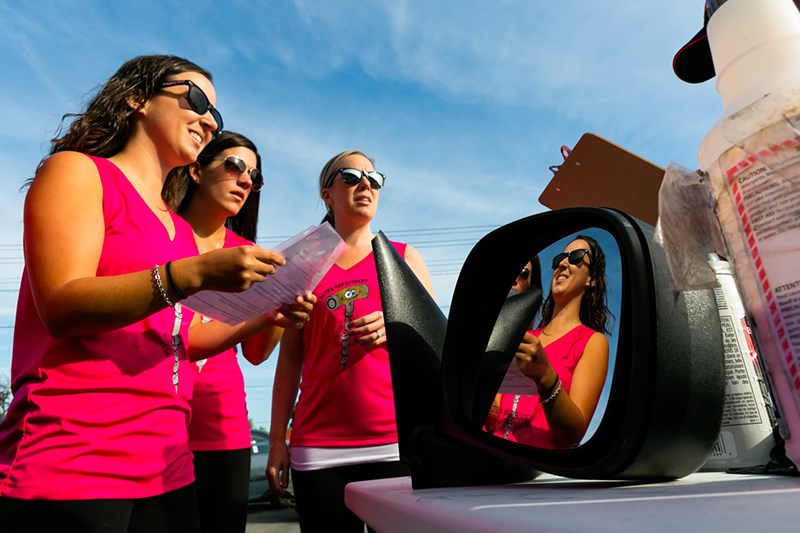Year of Local
Laura Greaves
This is the fifth in a series of submitted stories produced by the Year of Local, a collaborative project highlighting businesses and not-for-profit organizations in Sarnia.
If you ask Race to Erase co-founders Rich Bouchard and Scott McKay what their event is all about, they will sum it up in one word: fun.
The Race to Erase is a road rally event in which teams of four visit businesses and local not-for-profits to compete in timed challenges. Members of the team with the fastest overall time are crowned the Race to Race champions and have their names engraved on the trophy.
Each team is asked to fundraise a minimum of $500 and chooses which charity they would like their funds to support.
The idea for a road rally fundraiser came about when the two, who met through the Chamber’s Young Professionals Group, were playing a round of golf. McKay had organized a similar event for his office a few years prior and they both agreed that sending teams of four to compete in timed challenges throughout Lambton County would create a fun and unique experience for everyone involved.
In the first year, the event was called the Race to Erase Hunger and participants raised funds for the Inn of the Good Shepherd’s Food Bank. In the second year, they ran the Race to Erase Homelessness and raised funds to help build the Good Shepherd’s Lodge.
Since then funds have gone to support many more charities. To date the event has raised $375,000.
In the ten years they’ve been running the event they’ve learned a thing or two. For instance, originally teams traveled to each location altogether. As more teams took part the second year, that was changed to a shotgun start. “If we tried that today we would still be working through it at midnight!” Bouchard said.
Highlighting local businesses and organizations has remained an integral part of the process.
“The stop challenges are designed to be fun but we sneak a bit of education in there as well,” Bouchard said. “We work with each location to make sure we highlight what’s important to them.”
Each year the committee brainstorms an entirely new set of stop locations and challenges. They meet with local businesses and not-for-profit organizations to create challenges that are both fun for the participants and raise awareness about the services offered at each location.
One of the core tenets has always been that all funds received go to local charities. While different funding opportunities have been used to cover the administrative costs (insurance, supplies, travel, marketing, website and software development) over the years, they are excited about a new initiative called Leveraged Fundraising.
“Leveraged Fundraising is a unique way to support the event and make this a true 100% model,” Bouchard said. “Community members donate $100 to cover all of the administrative costs, including the credit card fees. Donors are multiplying their impact by supporting an event that benefits several local charities. We know this leveraged approach is a win-win for the entire community.”
For more Year of Local stories, visit: www.yearoflocal.com
